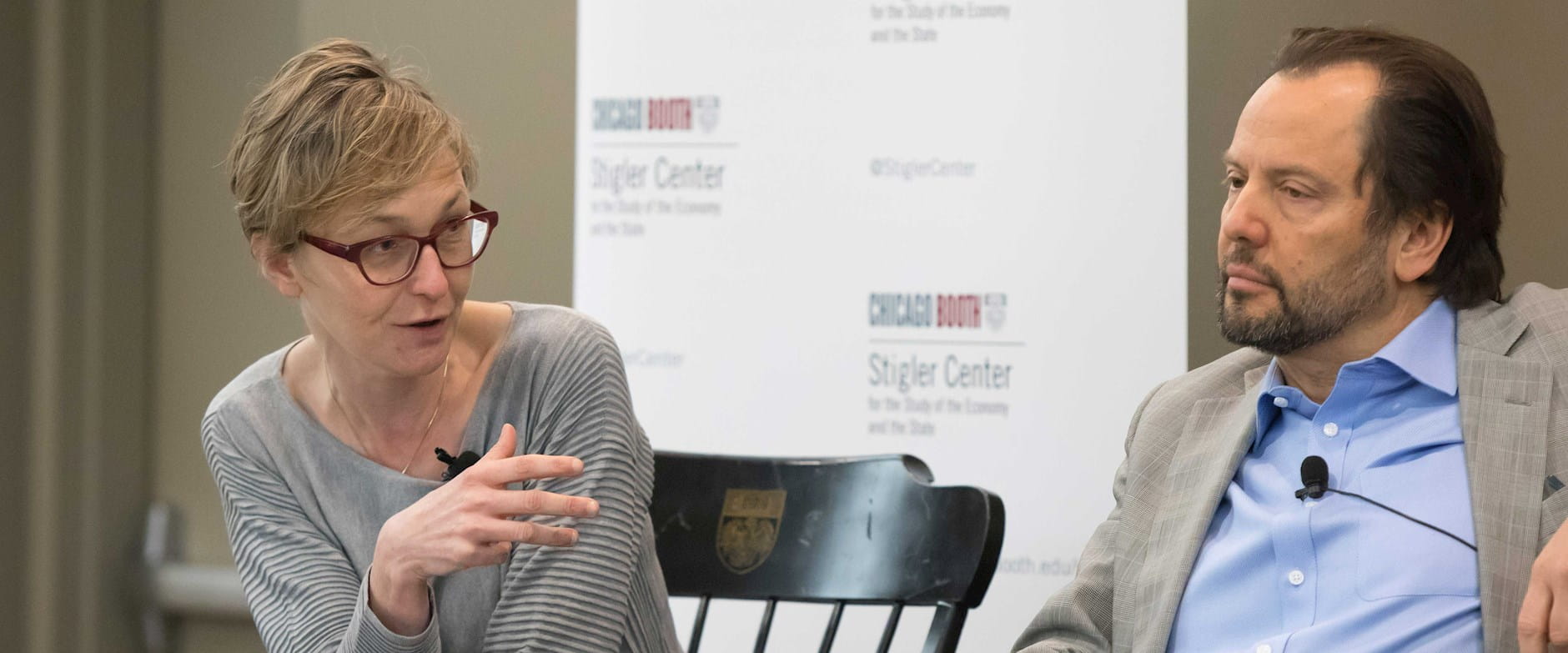
Accounting
The accounting faculty at Chicago Booth produce groundbreaking research across the accounting spectrum.
Accounting
This website uses cookies to ensure the best user experience.
Privacy & Cookies Notice
|
NECESSARY COOKIES These cookies are essential to enable the services to provide the requested feature, such as remembering you have logged in. |
ALWAYS ACTIVE |
| Reject | Accept | |
|
PERFORMANCE AND ANALYTIC COOKIES These cookies are used to collect information on how users interact with Chicago Booth websites allowing us to improve the user experience and optimize our site where needed based on these interactions. All information these cookies collect is aggregated and therefore anonymous. |
|
|
FUNCTIONAL COOKIES These cookies enable the website to provide enhanced functionality and personalization. They may be set by third-party providers whose services we have added to our pages or by us. |
|
|
TARGETING OR ADVERTISING COOKIES These cookies collect information about your browsing habits to make advertising relevant to you and your interests. The cookies will remember the website you have visited, and this information is shared with other parties such as advertising technology service providers and advertisers. |
|
|
SOCIAL MEDIA COOKIES These cookies are used when you share information using a social media sharing button or “like” button on our websites, or you link your account or engage with our content on or through a social media site. The social network will record that you have done this. This information may be linked to targeting/advertising activities. |
|

Chicago Booth is home to a world-class set of faculty whose research is impacting the world in profound and diverse ways.
Our faculty are organized into 11 academic areas. Each academic area provides faculty with a network of support to brainstorm, conduct, and publish groundbreaking research in their field—from Nobel Prize-winning work bridging the gap between economics and psychology, to research that shines a light on the operational issues in the criminal justice system.
We embrace academic interdisciplinarity at Booth. Faculty have the complete freedom to work across academic areas to generate game-changing insights.
Learn more about the research areas at Chicago Booth.

The accounting faculty at Chicago Booth produce groundbreaking research across the accounting spectrum.
Accounting
Booth’s Applied AI academic area is driving the future of artificial intelligence with bold research and world-class faculty.
Applied AI
The behavioral science faculty remain at the vanguard of understanding judgment and decision-making.
Behavioral Science
In this area, faculty teach students how to leverage data in order to analyze and solve business and economic problems.
Econometrics and Statistics
This academic area is led by world-class faculty—both researchers and practitioners—who make Booth the destination for entrepreneurship education and research.
Entrepreneurship

Our faculty in this area are generating insights into today’s most critical issues, including monetary policy and how economic agents cope with change.
Macroeconomics

Booth’s microeconomics faculty are shaping the understanding of modern economic theory and practice with an enduring global impact.
Microeconomics
Our operations management faculty are generating research insights across areas—from health-care analytics to the criminal justice system.
Operations Management
At Booth, a key component of our mission is to educate current and future leaders. See how our faculty are helping to fulfill the promise of a Booth education.
Strategy and Leadership